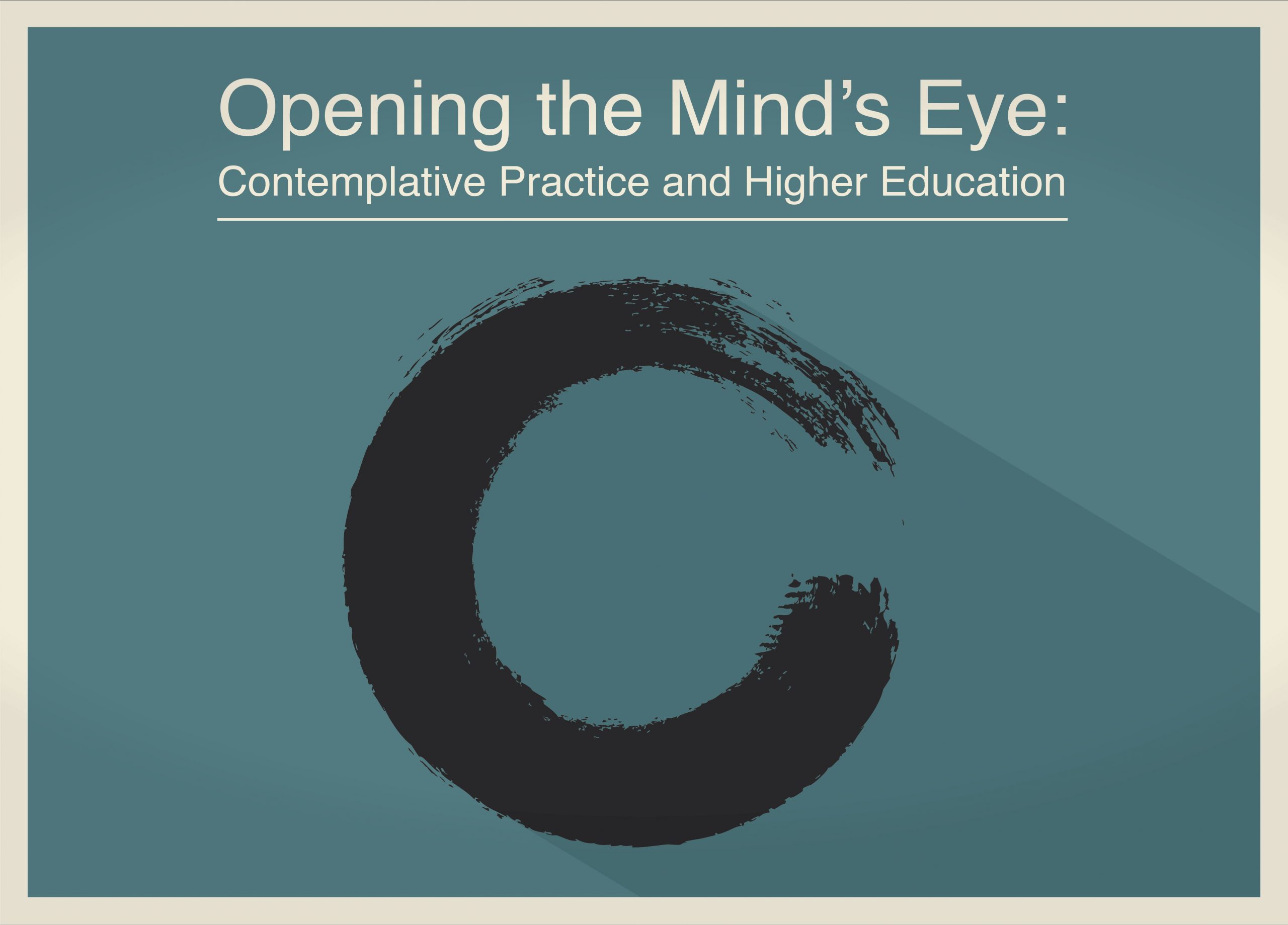
OPENING THE MIND’S EYE
A growing body of neuroscientific research confirms that contemplative practices such as meditation and traditional yoga have measurably positive effects on memory, attention, and empathy. Many American universities, medical schools, and research institutes have begun to incorporate forms of contemplative practice into their programs (the Stanford University Center for Compassion and Altruism Research is a notable example here in the PAC 12). As American society struggles with painful internal polarization and world conflicts proliferate, students and faculty alike hunger for a compassionate education of the “whole person” aimed toward making a positive impact locally and globally.
In this unique Praxis Lab, students will explore and experience contemplative practices from around the world and throughout history—from the ancient to the modern, from the spiritual to the secular, from the visionary to the embodied—and consider these practices’ potential for interacting with, and deepening, university education. Students will learn hands-on practices from the lab instructors and from distinguished visitors from numerous secular and spiritual traditions (mindfulness and insight meditation, Zen and Tibetan Buddhism, traditional yoga, Quaker practice, Catholic and Islamic mystical poetry, contemplative psychotherapy and Jewish Kabbalah, among others*).
This Praxis Lab will meet Fall 2016-Spring 2017 Wednesdays 2:00-5:00pm

Students will not only learn about the practices (from class lectures, classic texts and other readings) but will personally and actively experience them (through in-depth classroom sessions and continuing at home). The course will also present the latest medical and scientific research on meditation (including visits by U of U medical and neuroscience faculty), and students will explore the growing use of contemplative practices in universities around the country (University of Arizona, Brown University, Emory University, Rice University, University of Michigan, etc.).
Students in this Praxis Lab will then conceive and implement collaborative and innovative class projects that apply these practices to the University of Utah. Some of the areas the students’ project(s) may impact could possibly include classroom applications, program development, workshops, campus wellness, mental health, and more. Students will partner with campus and/or off-campus organizations to take what they have learned and experienced into the community and world.
Together, we will work to “open the mind’s eye”—to unlock the mind and heart’s potential for our full humanness.
OME_FinalReport
Faculty
Phillip Bimstein – Associate Instructor, Honors College
Described by Outside Magazine as “America’s only all-natural politician-composer,” Phillip is an Emmy Award-winning musician and the former two-term mayor of Springdale, Utah (where, after years of polarization, Parade Magazine dubbed him: “The Man Who Brought Civility Back to Town”). His classical compositions have been performed at Carnegie Hall, Lincoln Center, the Kennedy Center, Abravanel Hall, the Aspen and Spoleto Music Festivals, London’s Royal Opera House, and on NPR. In the 80s, Phillip’s punk rock group’s videos were staples on MTV. His music has been reviewed in many publications including The New York Times, Washington Post, Stereo Review, Billboard, and Wired.
In the Honors College, Phillip co-taught the Praxis Lab on Alzheimer’s Disease and Aging. He also teaches “Composing a Community,” which explores the relationships between music, dialogue and community. He is a public speaker on the related topic: “Practicing Politics with Music in Mind.” Phillip has served as chair of Utah Humanities, vice-president of the American Music Center, and he is currently board president of Heart & Soul. He has practiced yoga, qigong and meditation for more than 40 years.
Joseph Metz, PhD – Associate Professor of German and of Comparative Literary and Cultural Studies (CLCS), Department of Languages and Literature
Joseph Metz received his PhD in German Literature from Harvard University and is Associate Professor of German and of Comparative Literary and Cultural Studies (CLCS) at the University of Utah. He teaches courses on Modernist Culture; the Sublime from Kant to Haruki Murakami; and Empathy, Medicine, and the Human Condition, among others. He has published in the United States and abroad on such topics as the body in Rilke’s poetry, postmodernism and the Holocaust, and the intersections of gender, race, and national identity in border zone literature. He is a longtime meditation practitioner in the Nyingma tradition of Vajrayana Buddhism and was the organizer of the 2014 Interdisciplinary Symposium on Empathy, Contemplative Practice, the Humanities, and the Sciences, which brought together spiritual teachers, artists, neuroscientists, and humanities scholars. He is currently the facilitator of a U of U Faculty Learning Community on empathy and contemplative practice.
_______________
*This class and the contemplative practices used in this class are presented in the spirit of academic inquiry and not for the purpose of promoting or proselytizing for (or against) any religious, faith, or secular tradition or belief. Participation in the contemplative practices does not require students to accept, reject, or alter any personal beliefs or commitments and a student may opt out of a specific practice that is prohibited by their religious or personal beliefs.
